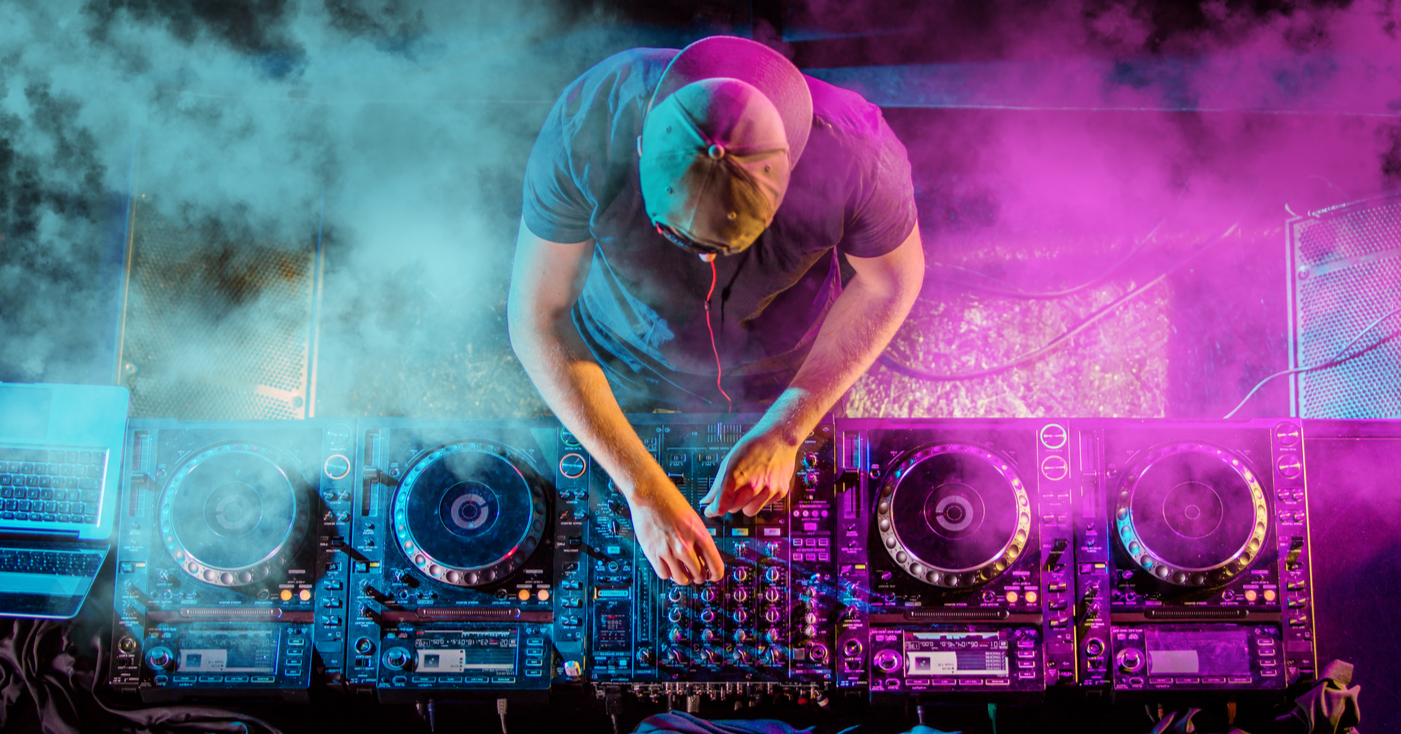Here’s How NFTs Could Disrupt a Heavily Centralized Music Industry
“Artists are excited about a new way to connect with their fans, [one that] doesn’t involve a buffer or a middleman,” Josh James, co-founder of OneOf, told Blockworks

Source: Shutterstock
- The music industry generates roughly $42 billion in revenue and less than 12% of that goes to artists
- Daniel Allan, an artist who previously made hundreds of dollars per month from Spotify, is now making thousands after minting NFTs of his music
World-renowned music producer Justin Blau sold his first tokenized album, Ultraviolet, as a collection of NFTs for $11.7 million in February. A month later, Kings of Leon made north of $2 million through NFT sales of their album, When You See Yourself.
Along with a booming and speculative non-fungible token market for visual art, fashion and even virtual real estate this year, the demand for tokenized music is notching never-before-seen highs as well.
“There’s never been a way for [musicians] to mint their own work or provide value directly to the fans while simultaneously being able to pull value directly from their fans [until NFTs],” Austin Virts, head of crypto marketing at Audius, told Blockworks.
Historically, the music industry generates roughly $42 billion in annual revenue and less than 12% goes to artists, according to a report from Audius. Additional data shows that around 90% of streams on platforms such as Spotify and Apple Music are from the top 1% of artists. Therefore, most artists get paid fractions of pennies per stream.
Seeking to disrupt this system that has often failed artists, Audius launched a peer-to-peer NFT music streaming service that allows users to upload their own music and monetize through tokens instead of royalties.
Audius allows creators and consumers to both upload and listen to content for free and without a third party. “We provide a UI and a UX, and then everything else on the back end is fully decentralized,” Virts said.
“There hasn’t really been anywhere [until] now for individuals who are not signed to a major record label to develop and grow an audience. Audius [is] utilizing blockchain technology to provide the platform for the 90% of artists who are being pushed around and not catered to by massive record labels.”
Currently, monetization for artists on Audius primarily comes from “trending tracks” on the platform via their token AUDIO. However, Virts said that a major focus moving forward for the platform is finding ways to increase monetization strategies.
“We’re not here to [just] make these artists millions of dollars,” he said.
“If you’ve never monetized your music before, and you upload to Audius and make $5,000 to $10,000 in one month, that can be life changing for a lot of people.”
Other startups such as OneOf are challenging the way musicians have historically interacted with their fans as well, co-founder and COO Josh James told Blockworks. The Quincy Jones-backed marketplace allows users to buy NFTs from certain musicians that gives them access to a “vault” where the artist can communicate with the NFT holders. OneOf has sold NFTs for big names such as rapper Pitbull, Doja Cat and Alesso.
“Artists are excited about a new way to connect with their fans, [one that] doesn’t involve a buffer or a middleman,” James said.
Additionally, the Grammy Awards announced in November that next year’s show would be commemorated via a collection of NFTs in a partnership with OneOf, signalling further adoption of the digital assets in the multi-billion dollar industry.
Although it is unclear whether music NFTs will ever achieve mainstream status, it’s hard to deny that digital collectibles have changed the lives of many whom the traditional music industry has failed.
Independent artist Daniel Allan, who previously only made hundreds of dollars per month from Spotify despite racking up millions of streams, is now making thousands from minting NFTs of his electronic pop songs, TIME previously reported.
“I felt that a lot of my career was making a certain type of music that I had to make — and at times I didn’t really connect with,” Allan said to TIME. “From an artistic standpoint, I just feel like NFTs and Web3 in general can create a much brighter space for art.”
Get the day’s top crypto news and insights delivered to your inbox every evening. Subscribe to Blockworks’ free newsletter now.






